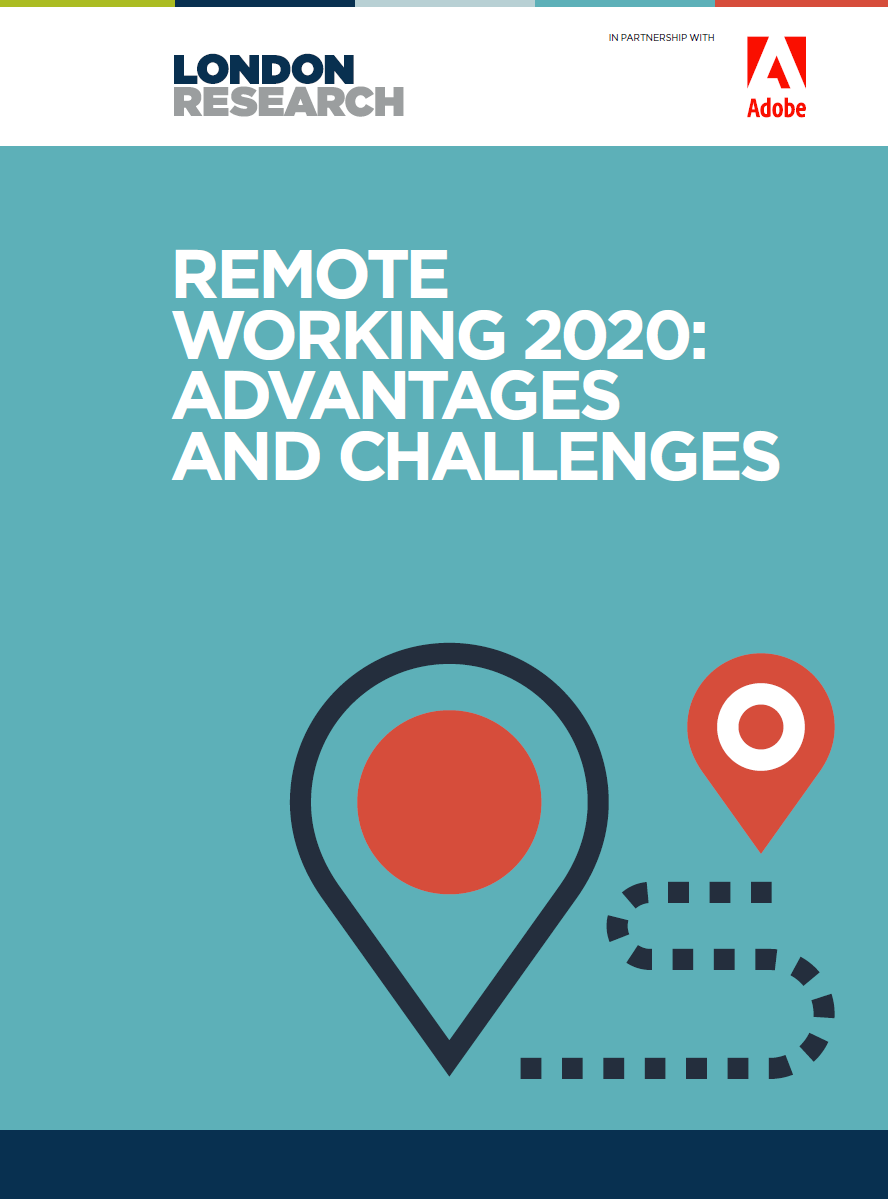City firms consider axing office space as remote work continues
Majority of office workers don't want to return, but many feel more vulnerable to cyber attacks


Demand for remote working is forcing City firms to review how much office space they really need, according to new research.
A financial services survey from the CBI and PwC has found that 74% of London-based banks and insurance firms have been assessing their office needs, according to The Guardian.
The companies are thought to be looking at how they can either use office space differently or reduce it. Of the 133 financial firms that took part in the survey, 88% said that COVID-19 had resulted in a greater shift towards working from home with more than 90% of their workers able to do their jobs without being tied to a physical office.
While the pandemic is still lurking, office work remains in limbo. The UK's government has U-turned in recent weeks, reversing its call to get back to the office - mainly to aid the retail sector - and reverting back to guidance that calls for employees to work from home where possible.
In a separate study of 1,200 workers across the US, UK, France, Germany, Netherlands, Australia and New Zealand, security platform MobileIron found that more than 80% of global employees don't want to return to the office, at least not full time.
Despite this, more than one in five workers feel more vulnerable working from home due to stress and isolation. Some 21% are worried about cyber crime, according to a new cyber security survey from PwC.
Of those, 35% cited stress or fatigue, while 17% suggested working in isolation as a reason that they felt more vulnerable. The survey of over 1,200 people currently in work in the UK was conducted in September of this year.
Get the ITPro daily newsletter
Sign up today and you will receive a free copy of our Future Focus 2025 report - the leading guidance on AI, cybersecurity and other IT challenges as per 700+ senior executives
RELATED RESOURCE

Remote working 2020: Advantages and challenges
Key takeaways from a survey of EMEA professionals
"Cyber criminals are above all opportunistic and we are seeing them use the fear, uncertainty and stress around COVID-19 to target their victims and play on their emotions," said Daisy McCartney, PwC's cyber security culture and behaviour lead. "As COVID-19 continues to dominate the news agenda, messaging related to vaccines, cures and financial relief will likely be used to target people.
"It is therefore understandable that people are feeling vulnerable to cyber crime, and according to our survey, 19% of people working from home during the pandemic do not feel that they have the necessary skills and training to keep safe from a cyber attack."
Bobby Hellard is ITPro's Reviews Editor and has worked on CloudPro and ChannelPro since 2018. In his time at ITPro, Bobby has covered stories for all the major technology companies, such as Apple, Microsoft, Amazon and Facebook, and regularly attends industry-leading events such as AWS Re:Invent and Google Cloud Next.
Bobby mainly covers hardware reviews, but you will also recognize him as the face of many of our video reviews of laptops and smartphones.
-
 Cleo attack victim list grows as Hertz confirms customer data stolen
Cleo attack victim list grows as Hertz confirms customer data stolenNews Hertz has confirmed it suffered a data breach as a result of the Cleo zero-day vulnerability in late 2024, with the car rental giant warning that customer data was stolen.
By Ross Kelly
-
 Lateral moves in tech: Why leaders should support employee mobility
Lateral moves in tech: Why leaders should support employee mobilityIn-depth Encouraging staff to switch roles can have long-term benefits for skills in the tech sector
By Keri Allan
-
 IT professionals aren’t budging on flexible work demands – and more than half say they’ll quit if employers don’t meet expectations
IT professionals aren’t budging on flexible work demands – and more than half say they’ll quit if employers don’t meet expectationsNews Analysis from Randstad shows 40% of UK-based IT pros have quit over a lack of flexible work options, while 31% of workers globally have done the same.
By Ross Kelly
-
 'The tide seems to be turning towards office attendance': 64% of hybrid business leaders want staff back in the office – but many worry that enforcing RTO mandates will drive employees away
'The tide seems to be turning towards office attendance': 64% of hybrid business leaders want staff back in the office – but many worry that enforcing RTO mandates will drive employees awayAnalysis Many UK business leaders want their staff back in the office more frequently, but they’re scared to implement return to office (RTO) mandates in fear of worker revolts.
By George Fitzmaurice
-
 Employees are dead set on flexible working arrangements – three quarters would turn down a role that didn't offer hybrid options as work-life balance becomes more important than pay
Employees are dead set on flexible working arrangements – three quarters would turn down a role that didn't offer hybrid options as work-life balance becomes more important than payNews New research shows workers are increasingly demanding flexible working arrangements from employers.
By Emma Woollacott
-
 Nearly half of tech workers are seeking new roles – declining employee benefits and reduced flexible working options have staff looking elsewhere
Nearly half of tech workers are seeking new roles – declining employee benefits and reduced flexible working options have staff looking elsewhereNews While salaries are rising for tech workers, other benefits are in decline, leading to a fall in job satisfaction
By Emma Woollacott
-
 Untethered: How CIOs and CISOs are paving the way for the new hybrid workforce
Untethered: How CIOs and CISOs are paving the way for the new hybrid workforceWhitepaper Effective techniques to transition from exposed legacy infrastructure to an effective zero trust strategy
By ITPro
-
 Unified endpoint management and security in a work-from-anywhere world
Unified endpoint management and security in a work-from-anywhere worldWhitepaper Learn how to converge endpoint management and security processes and systems to drive efficiency and reduce risk
By ITPro
-
 How to empower employees to accelerate emissions reduction
How to empower employees to accelerate emissions reductionin depth With ICT accounting for as much as 3% of global carbon emissions, the same as aviation, the industry needs to increase emissions reduction
By Fleur Doidge
-
 Worldwide IT spending to grow 4.3% in 2023, with no significant AI impact
Worldwide IT spending to grow 4.3% in 2023, with no significant AI impactNews Spending patterns have changed as companies take an inward focus
By Rory Bathgate